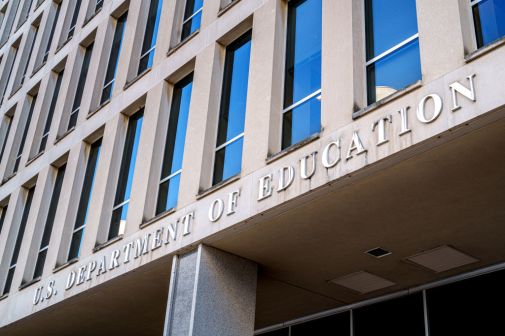Biden to unveil cybersecurity ed grant for black colleges
The Obama administration plans to award 13 historically black colleges and universities $25 million in grants to create a cybersecurity education consortium, Vice President Joe Biden is slated to announce Thursday in Norfolk, Virginia.
“This program … will help fill the growing demand for skilled cybersecurity professionals in the U.S. job market at the same time that it helps to grow the science, technology, engineering and mathematics (STEM) curricula for HBCUs,” according to a release from the White House. The grants will be distributed over five years by the Energy Department.
Participating schools include two- and four-year colleges, as well as research institutions in seven states and the Virgin Islands. The consortium will also include two national labs. Norfolk State University, where Biden and Energy Secretary Ernest Moniz plan to make the announcement, is one of the colleges that will benefit from the funds.
“With these new grants, Norfolk State and other HBCUs will be better equipped to provide students with the training and skills necessary to combat current and future cyber threats,” Sen. Tim Kaine, D-Va., said in a statement.
Black students traditionally have not pursued computer science and technology careers, and experts say this grant could tap into unused potential at HBCUs like Hampton University in Virginia, Spelman College in Georgia and Tougaloo College in Mississippi. The full list of recipients will be released Thursday, a spokesman for the vice president said.

Morgan State University President David Wilson at a 2013 Department of Energy event. (DOE/Flickr)
The grant “allows HBCUs and African American students to be a part of something that, in many ways, they have not yet had an opportunity to be a part of,” said Marybeth Gasman, professor of higher education at the University of Pennsylvania. “There are very few African Americans who are anywhere near doing degrees in computer science or engineering, so that keeps them out of jobs that have to do with cybersecurity.
“It gives more students of color access to a field where there are lots of jobs available,” she added. “It helps them as individuals and also diversifies the profession.”
Gasman said many black students are interested in science early on in school, but by eighth grade, they are often talked out of pursuing a career in a technical field.
“If you don’t see anybody who looks like you, and you don’t have anyone introduce this to you as a career, you’re not going to seek this out,” she said. “It’s really important to have these programs, especially at HBCUs, because they can provide some race role models to young people.”
David Wilson, president of Morgan State University in Baltimore, said this grant dovetails the school’s work around technology career initiatives. He told FedScoop he is encouraged by the Obama administration’s efforts to connect with minority students and raise awareness about STEM and sustainability careers.
“I have been very encouraged over the last two years on the emphasis to reach out to minorities,” said Wilson, a member of the White House’s advisory board on HBCUs. “We’re very excited that there is an effort underway to make sure that all innovation in all of higher education is being tapped.”




